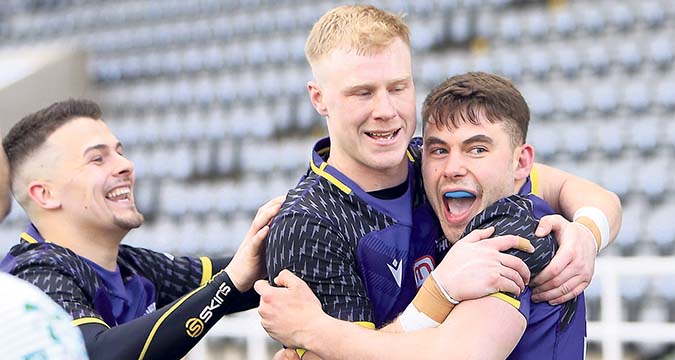 Gareth Walker hears Mick Hogan’s thoughts on the sport’s future in crucial coming years
Clubs outside Super League will have to adapt to some major financial challenges next year, which shouldn’t be a surprise to anybody.
That’s the stance of Newcastle Thunder Chairman Mick Hogan as his club and all others prepare to deal with signifi
Gareth Walker hears Mick Hogan’s thoughts on the sport’s future in crucial coming years
Clubs outside Super League will have to adapt to some major financial challenges next year, which shouldn’t be a surprise to anybody.
That’s the stance of Newcastle Thunder Chairman Mick Hogan as his club and all others prepare to deal with signifi Championship Focus: Adjusting to a future without Sky TV revenue is possible
 Gareth Walker hears Mick Hogan’s thoughts on the sport’s future in crucial coming years
Clubs outside Super League will have to adapt to some major financial challenges next year, which shouldn’t be a surprise to anybody.
That’s the stance of Newcastle Thunder Chairman Mick Hogan as his club and all others prepare to deal with signifi
Gareth Walker hears Mick Hogan’s thoughts on the sport’s future in crucial coming years
Clubs outside Super League will have to adapt to some major financial challenges next year, which shouldn’t be a surprise to anybody.
That’s the stance of Newcastle Thunder Chairman Mick Hogan as his club and all others prepare to deal with signifi 